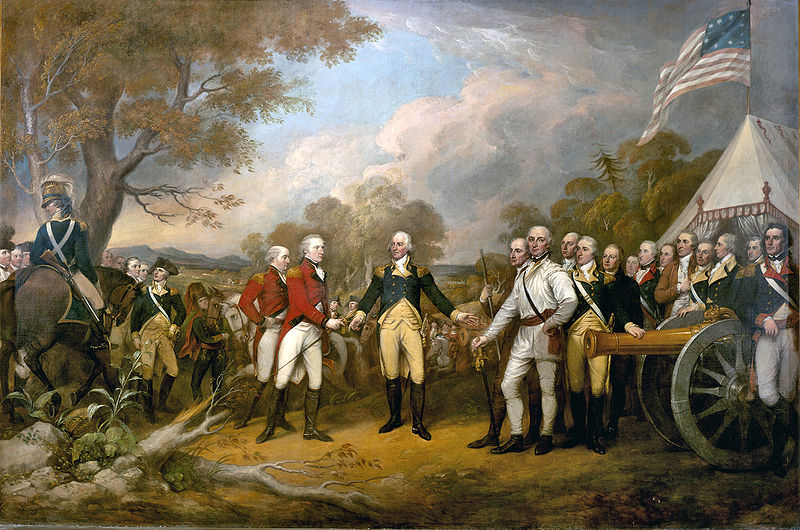Seven Ways the Magna Carta has Impacted Latter-Day Saints
Ever since the Magna Carta was sealed on June 15, 1215, it has impacted the lives of people all over the world. The document, originally written by angry barons wanting to overthrow their tyrannical king, laid (in part) the foundation for modern human rights movements. The writer of the American Constitution, Thomas Jefferson, relied on it, as did politicians in Australia, India, and even the United Nations.
We might not know it, but the Magna Carta has affected the quality of our lives and even the formation of our Church. Read below to discover seven ways the Magna Carta has influenced our lives.
It Led to the Freedom of Speech and Religion

The Magna Carta opened up rights for underclass citizens (starting with the Habeas Corpus clause) which led to our Freedom of Speech and Religion. These two particular rights paved the road for a country ready to hear and accept the message of the gospel. We certainly wouldn’t have the gospel without our freedoms of religion and speech
It Pioneered Democracy

Along with creating a precedent for Freedom of Speech and Religion, the Magna Carta pioneered modern western democracy. It provided a basis off of which the United States could be built. The Magna Carta, along with the Greek and Roman models of democracy and republic, served as the basis for the Declaration of Independence as written by Thomas Jefferson.
Without this government in place, the gospel could never have been organized as a church in New York, and we wouldn’t have it today. In addition, some basic principles of democracy are alive and well in the Church today, as is evidenced by our active participation in the Church.
It Changed the History of the Entire Western World

Imperialistic England spread the ideas of the Magna Carta (within their English Common Law) to major countries all over the world, including the United States, Australia, and the biggest democracy in the world, India. This spread of basic democracy has allowed the Church access to proselytizing in many countries all over the world.
Without the principles of the Magna Carta underlying different governments, we might have a tougher time getting into their countries to proselytize and share the joy of the Gospel, resulting in fewer converts and fewer people with the gospel in their lives.
It Provided a Precedent for Human Rights

Starting with its Habeas Corpus law, the Magna Carta paved the way for future human rights thinkers and activists. The Habeas Corpus law allows inmates to petition the courts for release if they think they were imprisoned unfairly. This law looks out for regular citizens in a way that policy didn’t at the time, providing a precedent for citizen’s rights.
Later, Eleanor Roosevelt referenced the Magna Carta as being one of her inspirations for writing up the Universal Declaration of Human Rights, the Human Rights policy accepted by the United Nations and placed into almost every country’s government in one form or another.
Human rights roots go back to the “Golden Rule” as taught by Christ. The basic principles of human rights hold that humans are all equal and deserve to be treated kindly and with respect. As Saints, we try to treat everyone we meet with kindness, regardless of race/religion/etc. If everyone abides by the principles taught by Christ and continued in the Magna Carta, life would be much more pleasant.
It Claimed that Even Leaders were Subject to the Law

The biggest reason the Magna Carta was written at all was to limit the powers of the King, the all-powerful monarch. This revolutionary thinking led to our own firmly held belief that even leaders are subject to the law of the land.
Tied directly back to the Magna Carta and Bible, in the Church today we believe very strongly that “God is no respecter of persons.” God loves everyone; he wants us all to improve and, eventually, return to live with Him.
No one is immune from sin and repentance. We are able to have confidence in ourselves as sons and daughters of our Heavenly Father. No man or woman is above us; we are all equal in the sight of God.
This increased self-confidence has roots in the Magna Carta. We can hold our heads knowing that earthly acclaim has little impact on our eternal salvation. No matter how people treat us, we have our Heavenly Father who loves us and wants us to return to Him.
It Proved that People Could Defy the Government and Still Do What Is Right

The barons were rebellious and traitorous against their liege-King. Under the law of the land, they should have been put in prison, at the least; however, they felt that something had to be done to stop the King from ruining the entire country, so they made a statement and stood their ground.
Similarly, the early Latter-Day Saint movement was occasionally at odds with the law of the frontier land they were settling. Local governments felt they had every right to punish the Saints for who they were, but just like the barons’ precedent with the Magna Carta, the Saints knew they were in the right. They had to stand up for what they believed in and even protect themselves on occasion.
Without this precedent of sticking to what was right instead of what was easy, the Saints were able to protect themselves and be protected, in turn. The gospel flourished and we are all inheritors of that legacy. The legacy of doing hard things.
It Demonstrated that People Could Question the Ultimate Authority

Latter-day Saints are taught that questions are good and help everyone grow in faith and knowledge. This attitude could have been passed down, in part, as a heritage of the Magna Carta. Up until the barons wrote the document, Kings were believed to rule through Divine Right. Anything the King said was the will of God and no one had the right to question him.
Granted, the barons had a more temporal reason for questioning the King, but it set an example, that of man questioning the Divine. In the Church, we believe that as long as we study and question with faith, God will answer our questions. Perhaps this tradition takes a little of inspiration from the Magna Carta.
The Magna Carta might have been sealed 800 years ago, but its effect can still be felt today. Take a moment to appreciate your freedoms this Magna Carta Anniversary and don’t forget to subscribe to our weekly newsletter.


